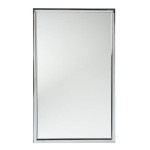Is Mirror Tint Legal in Florida?
Tinted windows offer several benefits, from increased privacy and reduced glare to protection from harmful UV rays and improved vehicle aesthetics. However, the desire for darker tints often clashes with safety regulations governing vehicle window visibility. Florida, known for its abundant sunshine, has specific laws regarding window tinting, and understanding these regulations is crucial for vehicle owners to avoid potential fines and legal complications.
Visible Light Transmission (VLT) Requirements
Florida law defines the legality of window tint based on its Visible Light Transmission (VLT) percentage. VLT refers to the amount of light that can pass through the tinted film. A higher VLT percentage means more light can pass through, resulting in a lighter tint. Conversely, a lower VLT percentage indicates a darker tint. Florida statutes specify the minimum acceptable VLT percentages for different vehicle windows.
Windshield Tint Regulations
For windshields, non-reflective tint is allowed above the AS-1 line provided by the manufacturer. This line is typically located several inches below the top edge of the windshield. Tinting below this line, except for certain medical exemptions, is generally prohibited. This ensures clear driver visibility, which is critical for safe operation of the vehicle.
Front Side Window Tint Regulations
Front side windows, referring to the windows adjacent to the driver and front passenger, must allow at least 28% VLT. This regulation balances the desire for some level of tinting with the need for law enforcement to clearly see inside the vehicle for safety and security purposes.
Back Side Window and Rear Window Tint Regulations
Back side windows and the rear window have more lenient VLT requirements. These windows may have any darkness of tint, as long as the vehicle is equipped with dual side mirrors. This recognizes the reduced visibility requirements for these windows compared to the front windshield and side windows.
Medical Exemptions for Window Tint
Florida law provides exemptions for individuals with certain medical conditions that require increased protection from sunlight. These individuals may be eligible to apply for a medical exemption permit to install window tint with a lower VLT than normally permitted. The application process requires documentation from a licensed physician certifying the medical necessity of the darker tint.
Reflective Tint Restrictions
In addition to VLT restrictions, Florida law also restricts the reflectivity of window tint. Window tint is considered reflective if it creates a mirror-like appearance. Highly reflective tints can create visibility hazards for other drivers, especially at night. Florida law generally prohibits highly reflective tint.
Penalties for Non-Compliance
Failure to comply with Florida's window tint laws can result in penalties. Law enforcement officers are authorized to issue citations for illegal window tint, and drivers may face fines. Repeat offenders may face stricter penalties. Furthermore, having illegal tint can complicate vehicle inspections and registration renewals.
Tint Variance and Manufacturer Disclosures
It's important to note that there can be slight variances in the actual VLT of tinted windows due to manufacturing processes. While manufacturers aim to produce tint that meets the specified VLT, slight variations can occur. Vehicle owners should ensure their chosen tint falls within the legal limits, taking potential variances into account. Reputable tint installers can provide information on the specific VLT of the film they use.
Window Tint Certification and Stickers
In Florida, window tint installers are required to certify the tint they install, confirming it meets legal requirements. A sticker identifying the film manufacturer, VLT percentage, and installer information should be placed on each tinted window. This sticker serves as proof of compliance and helps law enforcement officers quickly determine the legality of the tint.

Florida Tint Laws 2024 Updated Car Tinting

Staying Out Of The Dark Your Guide To Florida Window Tinting Laws

Tint Laws And Percentages Florida 727 513 7470 Largo Window Tinting

What Is The Darkest Legal Tint In Florida Answered By A Local Expert

Florida Tint Laws Low Offset

Florida Window Tint Laws Things You Need To Know Before Tinting Olive Coco Mag

Florida Car Window Tint Laws

Florida Tint Laws 2024 Everything You Need To Know

Tint Law Sunguard Window Tinting Naples Florida

Florida Tint Laws Window Pros Find For All Windows








